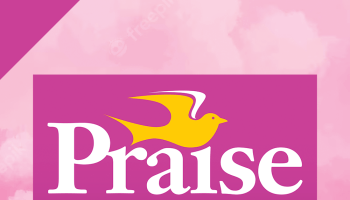SAN FRANCISCO (AP) — State lawmakers are calling for greater oversight of campus police departments after investigators blasted administrators and officers at the University of California, Davis, for pepper-spraying demonstrators – a police action that drew widespread criticism after a video went viral.
In a report released Wednesday, a UC Davis task force said the decision to douse seated Occupy protesters with the eye-stinging chemical was “objectively unreasonable” and not authorized by campus policy.
“The pepper-spraying incident that took place on Nov. 18, 2011, should and could have been prevented,” concluded the task force created to investigate the confrontation.
The chemical crackdown prompted widespread condemnation, campus protests and calls for the resignation of Chancellor Linda Katehi after videos shot by witnesses were widely played online. Images of an officer casually spraying orange pepper-spray in the faces of nonviolent protesters became a rallying point for the Occupy Wall Street movement.
Assembly Speaker John Perez, who sits on the UC Board of Regents, said in a statement that the report “shows the systemic and administrative problems that led up to an outrageous and excessive use of force against peaceful student demonstrators.”
Perez, D-Los Angeles, said he would work with the UC board and state Legislature to make sure UC Davis officials are held accountable in addressing the report’s “very troubling revelations.”
Perez’s spokesman, John Vigna, said it was too soon to say what form the legislation would take, but it would likely focus on police oversight at UC campuses.
Assemblywoman Nancy Skinner, a Democrat whose district includes UC Berkeley, also said she would pursue legislation based on the report’s recommendations to improve the training, organization and operation of campus police departments.
The task force blamed the the incident on poor planning, communication and decision-making at all levels of the school administration, from Katehi to Police Chief Annette Spicuzza to Lt. John Pike, the main officer seen in the online videos.
Pike and other officers said they needed to use pepper-spray to break through a hostile crowd, but the investigation determined police were able to step over the seated protesters and walk through the throng of onlookers, according to the report.
“There was really no reason, we conclude, to have used the pepper spray,” Cruz Reynoso, a retired California Supreme Court justice who chaired the task force, said at a campus forum where the panel presented its findings and recommendations.
The report also said Pike used a pepper-spray canister that was larger than the one campus police officers are authorized and trained to use.
John Bakhit, an attorney for the campus police officers union, said the pepper-spraying was justified after protesters disobeyed orders to disperse and said they wouldn’t allow the officers to leave until several detained demonstrators were released.
“I believe all the officers exercised quite a bit of restraint under the circumstances,” Bakhit said.
All the officers involved are under orders not to discuss the incident because an internal department investigation is ongoing, Bhakit said.
The attorney said the task force was wrong to conclude that Pike’s use of pepper-spray was unreasonable because investigators did not interview him.
The task force blamed the chancellor for not clearly communicating to her subordinates that police should avoid physical force on the protesters. It also said she was responsible for the decision to deploy police on a Friday afternoon, rather than wait until early morning as Spicuzza recommended.
The report chided the police chief for failing to challenge the timing of the operation and not providing clear instructions to the responding officers.
In its recommendations, the task force called on UC Davis to develop a school policy detailing how administrators and campus police should respond to student protests and civil disobedience. The panel did not recommend disciplinary actions for specific university employees.
Katehi said school administrators would study the report’s recommendations and develop a detailed response and action plan “that will ensure that students’ safety and free speech rights are paramount.”
Mark Yudof, who heads the 10-campus system, said he planned to meet with Katehi to discuss the recommendations. A separate university task force is working on a report on how school officials should respond to student protests at all 10 UC campuses, he said.
“Free speech, including nonviolent protest, is part of the DNA of this university, and it must be protected with vigilance,” the UC president said in a statement.
Fatima Sbeih, one of the pepper-sprayed students who are suing the administrators over the incident, said she was pleased by the report’s thoroughness.
“The university was acting on assumption and fear rather than following policy and procedure,” Sbeih said. “Students do have a right to protest, and the university needs to respect that.”
Cali College Slammed For Pepper Spray Incident was originally published on newsone.com












